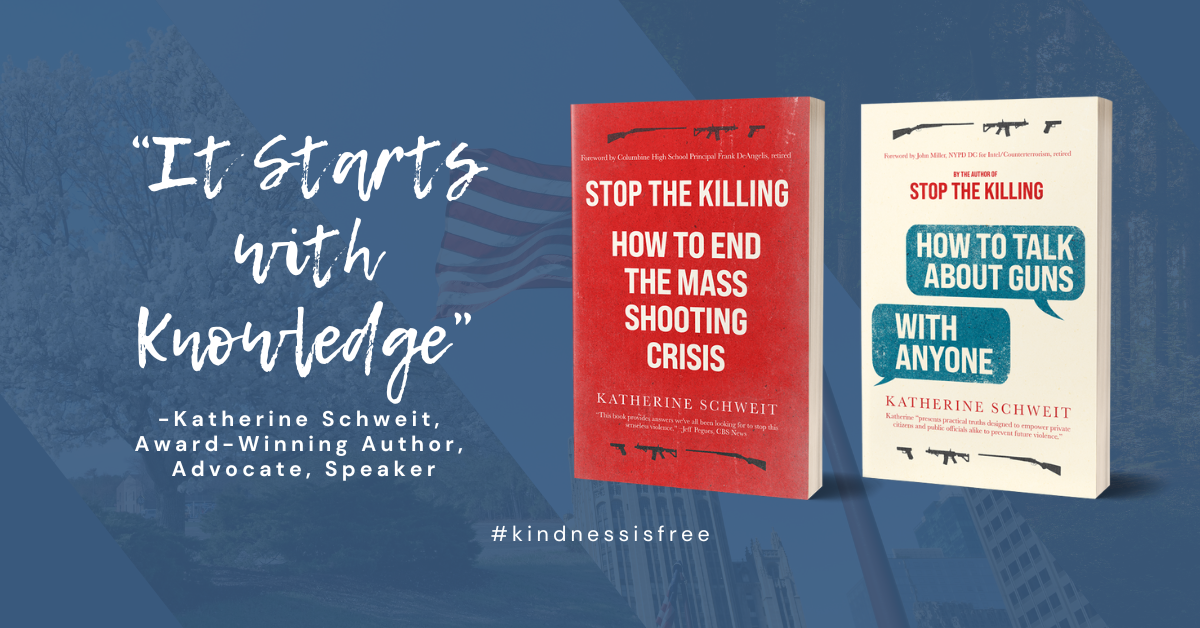
Q. What about the good guy with a gun theory?
We don't have any data to support the good guy with a gun theory. We have four times as many instances where an unarmed civilian interceded and stopped a shooting.
Q. What will readers learn from your book?
I want readers to appreciate that before a shooting might occur, they can prevent it. When a shooting occurs, they can keep themselves and others safe if they already know how to run, hide and fight. After the shooting is over, good planning can return a community to some sense of normalcy.
Q. What is threat assessment and threat management?
Many, many big companies have threat assessment teams meeting routinely, such as monthly. These threat assessment teams analyze the information they receive and then choose the best way to manage that information which is why we talk about both threat assessment and threat management.
Q. Why did you write Stop the Killing?
We need to be as devoted as we were after 9/11 to watch out for each other, and when we see behaviors of concern or hear leakage from a person on a pathway to commit a mass shooting, we need to say something.
Q. Can we stop the killings?
Probably the biggest misunderstanding about gun violence events is there's going to be enough time in the heat of the moment to make a decision about what to do or even to tell other people what to do.
Q. Do we learn anything good from these terrible shootings?
With the FBI, I worked the Holocaust Memorial Museum shooting in Washington DC and the Pentagon shooting in Virginia several years ago. I worked many more while running the active shooter program in FBI headquarters as part of the team coordinating responses from the FBI's Strategic Operations Command Center.




